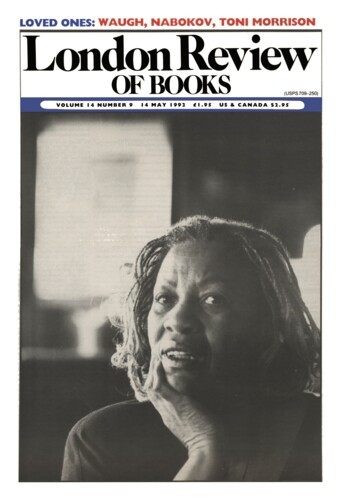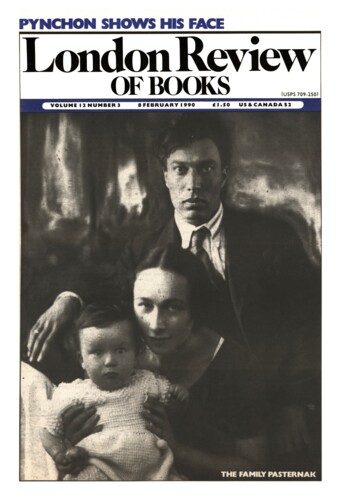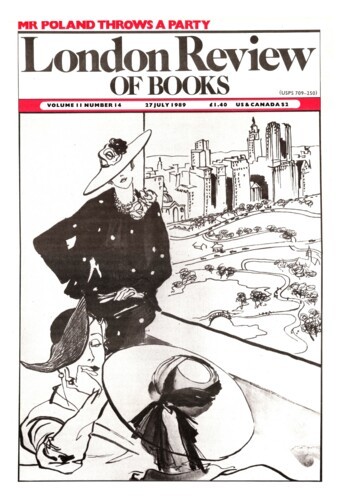Thinking Persons
John Ellis, 14 May 1992
These five books continue in then very different ways the intense debate about the purpose of literary criticism and its relation to ‘theory’. Addressing Frank Kermode has its origin in a conference devoted to Kermode’s work. Five papers selected from those delivered at the conference are followed by a reply from Kermode himself; five more follow which ‘acknowledge, more or less directly’, his ‘influence’. The uncertainty visible here betrays some wishful thinking on the part of the editors, for many of these essays are conventional festschrift contributions largely unrelated to the thought of the figure whom they honour. Three of the contributors do, however, engage Kermode’s thought in a fairly serious way: John Stokes, George Hunter and Patrick Parrinder. Two ways of doing so were possible. Either Kermode’s general view of the critic’s task or his ideas concerning specific texts or groups of texts could have been the focus of attention. Stokes and Hunter choose the second of these possibilities and examine aspects of Kermode’s Romantic Image and Forms of Attention respectively; Parrinder objects to Kermode’s general view of criticism. Kermode’s response – appropriately enough, the most interesting essay in the book – is both explicitly and implicitly more concerned with Parrinder’s comments than with any other issue raised by his critics. Taken together with the prologue to his An Appetite for Poetry (which appeared in the same year as the conference), it gives us a clear and sometimes forceful account of how Kermode views the contemporary scene.’



